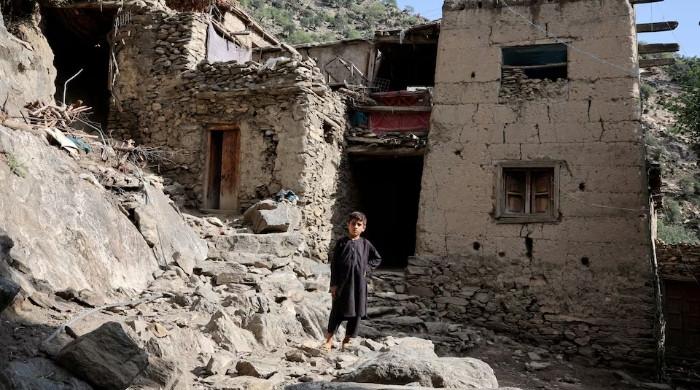Landslide fears keep Afghan earthquake survivors from returning home
Afghan earthquake survivors are refusing to return to their destroyed villages, haunted by the fear that aftershocks could trigger deadly rockfalls from the surrounding mountains. Many remain stranded in open fields or along riverbanks, exposed to the elements with no proper shelter.
“We have no shelter, not even a tent,” said Adam Khan, a 67-year-old farmer from Masud village in eastern Kunar province, standing by the ruins of his collapsed home. “It rained last night, and we had no place to take cover. Our biggest fear is the big rocks that could come down at any moment.”
Since August 31, two devastating earthquakes have claimed more than 2,200 lives and injured over 3,600 across the region, flattening thousands of fragile mud-and-stone houses. Aftershocks continue to trigger landslides, leaving families trapped between unstable mountains and overflowing rivers.
Aid agencies have flown in supplies by helicopter, but survivors complain that help has been slow and inconsistent. Many villages remain isolated, several hours’ walk from the nearest road. Families now live in makeshift camps with nothing but salvaged belongings.
“The tents they gave us cannot even accommodate our children,” said farmer Shams-ur-Rahman, who lost six relatives and fled with his family of nine. “On the way down from the mountain, I had no shoes for my son, so we shared mine in turns as we walked.”
For many, displacement seems permanent. “Even if there is no earthquake, a simple rainfall could bring rocks crashing down on us,” said 51-year-old Gul Ahmad, standing beside flimsy pop-up tents. “We will not go back. The government must provide us a place.”
Humanitarian organisations warn that without proper shelter, sanitation, and food, the situation could spiral into disease outbreaks and worsening poverty in one of the world’s most earthquake-prone countries. Children are among the hardest hit. Twelve-year-old Sadiq, who survived 11 hours trapped beneath rubble, recalled softly, “I thought I would die. It felt like doomsday.”
Meanwhile, at the United Nations, Shannon O’Hara, Head of Strategy and Coordination for OCHA Afghanistan, is preparing to brief virtually on the international humanitarian response to the crisis.

